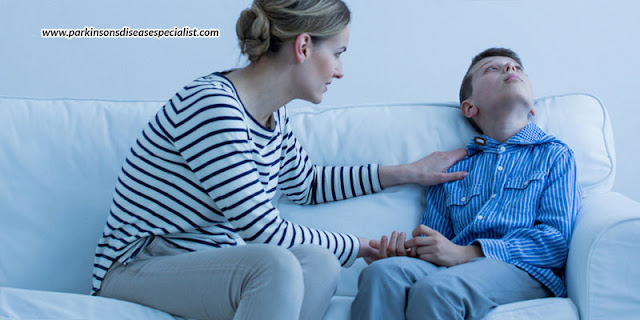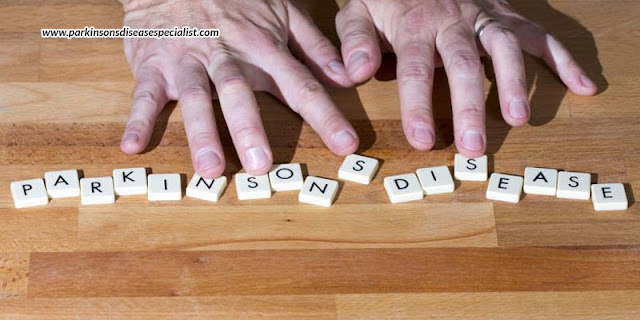Parkinson's is a neurological disorder that causes problems with movement. It causes involuntary movement of the muscles, which may further cause rigidity and difficulty in walking. The problems associated with Parkinson's may cause discomfort, frustration, embarrassment, and worst of all, depression. Thus, it is better to keep a check on whether you are facing any symptoms of this disease so that it can be cured/treated at the earliest so that you don’t have to face any of the above mentioned outcomes. Look out for any of the below mentioned symptoms, and if you notice any of them, get an appointment with a Parkinson’s disease specialist in Bangalore immediately.
Monday, 16 July 2018
Sunday, 17 June 2018
How Effective Is Massage For Treating Dystonia?
Dystonia is a neurological movement disorder that involves faulty signals from the brain to the nerve cells that causes muscles to spasm and pull on the body incorrectly. It may affect a single muscle, a group of muscles, or the entire body. Because there is a lack of balance between the selected muscles, involuntary movements of the limbs, face, jaws, and head are seen.
Tuesday, 22 May 2018
Why Should Movement Disorder Be Treated By A Specialist?
Parkinson’s disease is a neurological disorder in which certain parts of the nervous system and brain degenerate. It is also a movement disorder as it causes involuntary movement and shaking of the limbs, face, and jaws. It may also cause rigid or slowed movement, and impaired walking. While all of this can come under the category of a neurologist, it is always better to seek the advice and treatment of a movement disorders specialist. This is because these specialists are trained to treat movement disorders after a general neurology study. Their additional study of 1 or 2 years has them standing apart from regular neurologists. One such movement disorders specialist in Bangalore is Dr. Shivam Mittal, who has completed his movement disorders education and is skilled with an immense amount of training in some of the best hospitals and medical institutes in America.
Sunday, 13 May 2018
How to Cope With Movement Disorders?
Living a happy life is in our own hands. Even though we suffer from diseases and ailments that may or may not be cured, living a quality life or not is in our own hands. One such ailment we will speak about today is movement disorders, which involves an involuntary movement of the muscles of the body. Although this ailment is a disturbing one, which may have the patient feel helpless and ashamed in front of others, it is important that one feels positive and deals with the ailment with patience. Negativity and the feeling of shame will only do harm to the mind and body, which may then lead to depression.
Wednesday, 9 May 2018
How Is Parkinson’s disease Treated?
Parkinson’s disease is a neurodegenerative disorder that affects movement within the body, along with rigidity, stiffness, sluggishness, and tremor. It happens when there is a problem with certain nerve cells within the brain. These nerve cells are generally designed to release a chemical called dopamine, which sends signals to the brain to control the movement of the various parts of the body. When there is lack of this chemical being produced, the brain fails to function effectively, thus causing abnormality in movement. This condition is known as Parkinson’s disease. Because dopamine controls activities like movement, sleep, learning, behavior, mood, concentration, and memory, all these activities are also affected by Parkinson’s disease.
Monday, 9 April 2018
Experiencing Urinary Symptoms While Suffering from Parkinson’s Disease?
Urinary incontinence is a very bothersome ailment, which can affect the quality of your life drastically. And, this ailment is a very common part of Parkinson’s disease. More than 50% of Parkinson’s disease patients are seen to exhibit urinary symptoms like nocturia, increased urinary frequency, and urinary incontinence. Almost 50% of patients also find it difficult to empty their bladder. Out of all these symptoms, nocturia is the most common complaint, which involves the frequent need of waking up in the middle of the night to urinate. However, all these symptoms are seen generally 5 to 6 years after the onset of Parkinson’s disease.
Friday, 16 March 2018
How Can Essential Tremor Be Treated?
Millions of people across the globe suffer from essential tremor. Every year lots and lots of essential tremor cases are being filed with doctors. Essential tremor should not be confused with the tremor that is seen in Parkinson’s disease. Essential tremor is worse and can affect the head and voice, unlike in Parkinson’s’ disease. Moreover, essential tremor is faster and even seen when the affected body part is at rest.
Subscribe to:
Posts (Atom)






